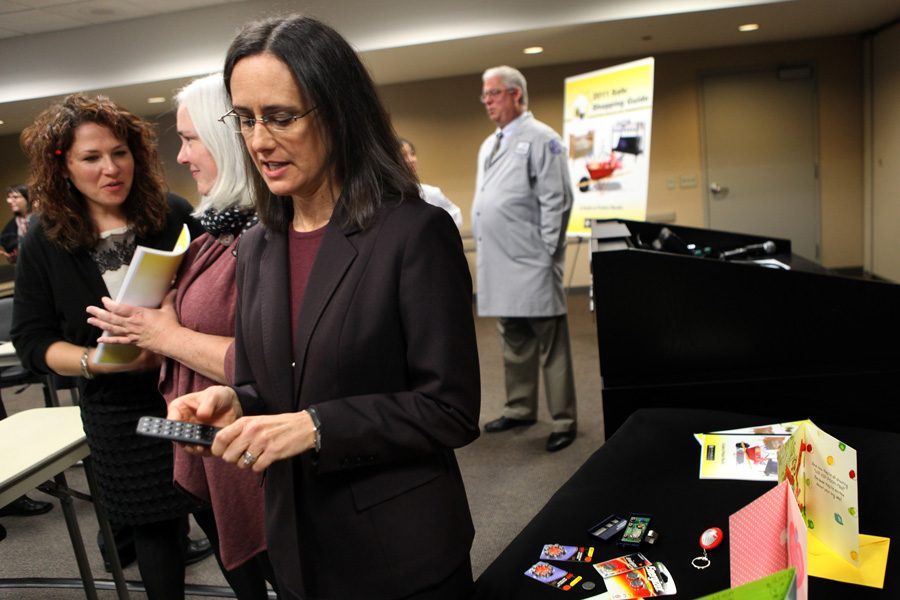Illinois joins 35 states in lawsuit against drug treating opioid addiction
Nancy Stone/Chicago Tribune/MCT
Illinois Attorney General Lisa Madigan holds a press conference in Chicago in 2011. Illinois joined 34 other states in suing a company that makes an opioid treatment drug.
October 3, 2016
Illinois joined 34 other states and the District of Columbia in a lawsuit against drugmaker Indivior over its prescription drug that treats patients addicted to heroin and other opioid drugs.
Indivior has been able to maintain its monopoly on the market by changing the medication from a tablet form to a dissolving film before the patent expired, blocking a generic alternative from entering the marketplace, the lawsuit alleges. Suboxone has made over a billion dollars in annual sales since 2009, when the original patent was due to expire.
“These companies rigged a system to ensure they profited at the expense of the people who depended on this drug to treat and recover from addiction,” Illinois Attorney General Lisa Madigan said in a statement.
Madigan said changing the product was illegal “product hopping.” Indivior, she said, made minor changes to extend patent protections and block cheaper alternatives.
Standing by its actions, Indivior said it altered Suboxone from a tablet to a dissolvable oral strip because of risks to children in the previous form. Indivior released a statement saying they intend to “vigorously defend its position.”
“We believe that the allegations in the complaint are wholly without merit and the suit is both factually and legally deficient,” MonoSol Rx CEO Keith Kendall, whose company worked with Indivior to alter Suboxone, said in the statement. “I think it is important to add that Suboxone sublingual film is a product which has saved countless lives since its approval by the FDA in 2010.”
Kathleen Kane-Willis, director of the Illinois Consortium on Drug Policy, referenced other instances of price fixing by companies and called the actions “horrific.” She cited issues with prices of EpiPen and Oxycontin, saying consumers have been unfairly treated.
“To change something not fundamentally and reapply for a new patent is unconscionable and destructive,” Kane-Willis said. “We are paying a lot for little results on the improvement end, but we are paying a lot of cost for that little tiny tweak.”
She called into question the legitimacy of changing from a tablet to a dissolvable, saying the tablets risk to children was “absolutely false.”
Robert Carty, clinical director at Hazelden Betty Ford in Chicago, an addiction treatment center, works with numerous patients fighting addiction. Although only a small percentage of patients use Suboxone because they try to get patients off as fast as possible, the treatment can last up to six months. He noted that this lawsuit comes at a time where there has been an increase in both heroin and other opioid users.
“Usually I don’t use words like opioid epidemic too much because they are scare tactics, but the Centers for Disease Control and Prevention calls it an epidemic,” Carty said.
From 2013 until mid-September of this year, 819 people in Illinois had died of heroin overdoses, according to data from the state’s Department of Public Health.
With the current election cycle, Carty said he has seen an increase in focus on opioid addiction from politicians. This current suit from 35 states and the District of Columbia is increasing awareness, he said. However, because of slowed legislation in Congress, there continues to be a lack of funding, Carty said. He added that there still is probably a stigma around opioid addiction.
Carty said even though the government has declared heroin use an epidemic, neither the federal nor state government have done much to address the problem because of budget crises.
“I don’t know if the federal government does enough, and certainly the State of Illinois Government has been in extended crisis for an extended period of time.”
Email: [email protected]
Twitter: @samkrevlin


